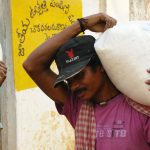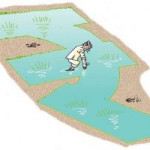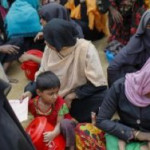The creation of a separate ministerial portfolio for animal husbandry, dairying and fisheries for the first time by Prime Minister Narendra Modi in his second term has aroused interest amongst enthusiasts in the agricultural policy space. With the dominant narrative of doubling farmers’ incomes by 2022 in the overall policy framework, and livestock and fisheries sub-sectors contributing significantly higher to the agricultural GDP compared to the crop production sub-sector, the subtle governance move has been hailed by stakeholders, mostly in the dairy industry. India being the largest milk producer in the world surely deserved to have a separate line ministry dedicated to the sector, after all. Source: IFPRI South Asia Office
One nation one ration card can transform lives
On June 27, Food Minister Ram Vilas Paswan announced plans to move towards a system of ‘One Nation One Ration Card’ (ONORC). The system, once introduced, would enable beneficiaries to get their quota of grains from any ration shop of their own choice across the country. The ONORC system is of considerable utility to migrants. Source: IFPRI South Asia Office
We have to look beyond Zero Budget Natural Farming
Overemphasis on Zero Budget Natural Farming (ZBNF) to reduce cost of production and double farmer incomes must be analysed critically and holistically. The adoption of high-yielding variety (HYV) seeds along with irrigation, chemical fertilisers, associated package of practices and strong policy support (credit, MSP, etc) ushered in Green Revolution during the 1960s. Source: IFPRI South Asia Office
Biofortified staples may hold the key to India’s rural malnutrition
The National elections in India may well be over, but the persistent issue of malnutrition still holds the nation in its tight grip. And yet, of the myriads of topical issues that comprised political propaganda, including caste, religion, employment, farmer upliftment, and even social transfers, none of the political parties raised this critical issue. The twin problems of malnutrition and nutritional insecurity are particularly severe in rural India. Source: IFPRI South Asia Office
Rohingya in Bangladesh are surviving – but their long-term prospects are grim
Paul Dorosh and John Hoddinott Note: Join us July 10 as the authors and other participants discuss their survey of Rohingya refugees in Bangladesh at an IFPRI policy seminar. It’s been nearly two years since 671,000 Rohingya fled violence and persecution in Myanmar for the safety of Cox’s Bazar, near the southeastern tip of Bangladesh. [Read More...] Source: IFPRI South Asia Office
- « Previous Page
- 1
- …
- 3
- 4
- 5
- 6
- 7
- …
- 10
- Next Page »




